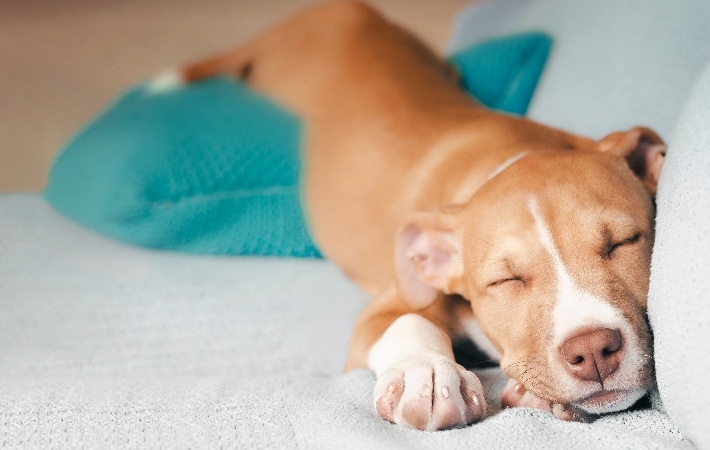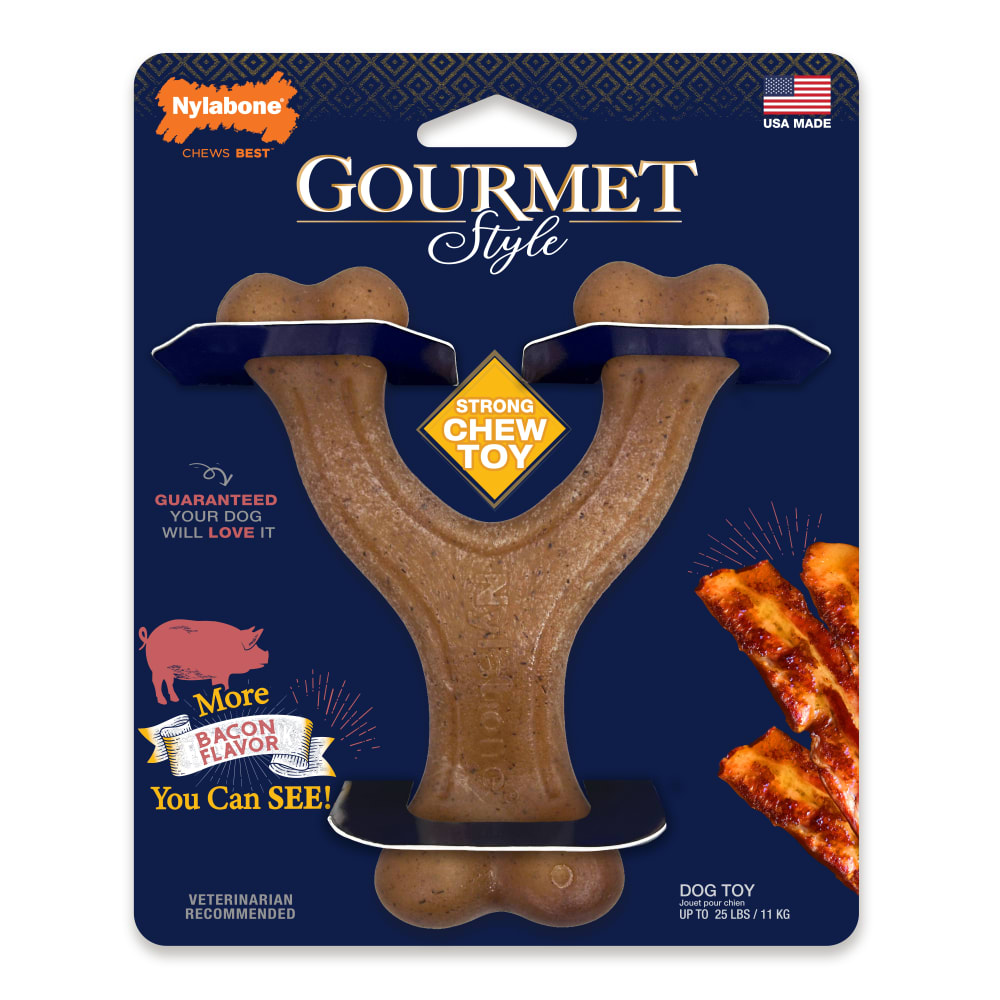Why Do Dogs Whine? 5 Reasons and Ways to Help
5 Reasons Why Dogs Whine
#1: They’re Bored
Boredom often leads to unwanted behaviors like destructive chewing or digging, so it’s important to keep your dog’s mind and body occupied. Make time for play every day and give plenty of love and affection. For even more mental stimulation, offering a dog treat toy will combine two of your pup’s favorite activities: treat time and chew time!
#2: They Need Something
Sometimes dogs whine simply because they need assistance. If your pooch hasn’t gone potty in a while or is whining while standing by the back door, they may be trying to tell you it’s time for a bathroom break.
Likewise, whining around mealtime might mean your dog is hungry or thirsty. If your dog seems to whine because they want some food from the table, that should be a no-go. Ignore your dog when they beg for table scraps and redirect them to their food bowl to teach them that whining will not get them what they want!
#3: They Have Separation Anxiety
Does your furry friend whine or bark when you leave the house? They may have separation anxiety, a behavioral issue that causes distress when they’re away from you. Separation anxiety often leads to problems like potty accidents, attempts to escape, destructive chewing, digging, and of course, whining.
Managing separation anxiety in dogs takes patience, but proper training and care can help them overcome their fear. Desensitizing your furry friend to triggering stimuli like the sound of the front door opening or jingling keys helps them stop associating these noises with distress. You can also let them enjoy an engaging chew toy for a few minutes before you leave home to help them release energy and provide a fun, comforting activity!
🐶 Related: Do Dogs Get Lonely? 5 Common Signs & 5 Ways to Help
#4: They’re Afraid
Similar to separation anxiety, various fears may explain why your dog whines. Things like loud fireworks or thunderstorms, trips to the groomer, and visits to unfamiliar environments often cause dogs distress.
The good news is that there are many methods for calming an anxious dog. Tiring them out with exercise, giving them a chew toy, maintaining a peaceful environment, and offering them a calming supplement are just a few of the ways you can help them manage stress.
#5: They Have a Medical Condition
If your dog appears to be in pain when they’re whining, they may be dealing with a medical problem. Dogs who whine while jumping, for example, might be suffering from joint pain. If your dog whines suddenly when you touch their ear, they may have an infection. Keep an eye out for other signs of pain or sickness, such as:
- Coughing
- Diarrhea
- Lethargy
- Loss of appetite
- Pale gums
- Shortness of breath
- Trouble urinating or having bowel movements
- Vomiting
Contact your veterinarian for advice if you suspect your dog is ill or in pain. The earlier you can get your furry friend treated, the better!
Why Do Dogs Whine in Their Sleep?

Just as some people talk or grunt in their sleep, our pets can make similar noises while they rest. It is believed that dogs dream during rapid eye movement (REM) sleep, according to VCA Animal Hospitals, which typically begins a few minutes after they doze off. No matter what your dog dreams about, these nighttime visions may explain why dogs whine in their sleep.
Which Dog Breeds Whine the Most?
Furry friends can whine for a variety of reasons, but some breeds may have you wondering: why does my dog whine all the time? High-energy dogs and terriers are some of the most “vocal” breeds; don’t be surprised if the following pups tend to whine or bark frequently!
- Australian Shepherd
- Basset Hound
- Beagle
- Border Collie
- Chihuahua
- Dachshund
- German Shepherd
- Maltese
- Miniature Schnauzer
- Pomeranian
- Siberian Husky
- Yorkshire Terrier
Less Whining, More Wagging!
Whether your dog whines all the time or they only seem to whimper when they want or need something, it’s important to understand what they’re trying to tell you. Check your furry friend to rule out medical reasons for their behavior, and make sure you keep them occupied and on a schedule to ensure they get regular potty breaks and mealtimes.
Our four-legged friends are full of habits that leave us puzzled. Find out why dogs chase their tails!
FOLLOW US!







